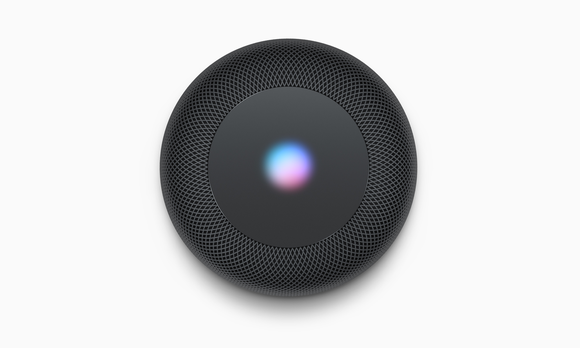Apple, Inc. Started Working on HomePod in 2012
Apple's (NASDAQ: AAPL) forthcoming HomePod won't see the light of day until "early 2018," which will be nearly six years after the company started developing the smart speaker, and almost four years after Amazon.com (NASDAQ: AMZN) released its first Echo in 2014. Investors know that timeline now thanks to a fresh Bloomberg report this morning, which says that Apple had already been working on prototype versions for about two years when the Echo was released.
The smart speaker project reportedly endured quite a bit of turmoil, being canceled and resurrected numerous times, and Apple tested out various different physical prototypes before landing on the current marshmallow design. One of these early versions was 3 feet tall while another resembled a flat panel, according to the report.

Siri lags Alexa in a plethora of ways. Image source: Apple.
"This is a huge missed opportunity"
While Apple doesn't generally place a lot of value in being first to market as long as it can offer the best product once it gets there, the HomePod is not only far behind rivals in timing, but also in features and capabilities. One of Bloomberg's sources went as far as to say, "This is a huge missed opportunity."
Apple audio engineers tore down an Echo and determined the audio quality was lacking, which could explain why the company is positioning the HomePod as a premium, high-fidelity speaker for audiophiles. It remains unclear if that value proposition will appeal to average consumers and justify the hefty $349 price tag, particularly as Apple lags in smart-home technology and virtual assistants compared to Amazon's growing Echo ecosystem.
The sources say Apple expects to ship 4 million HomePods in 2018, in line with an analyst estimate released last week.
Second time's the charm?
In developing the HomePod, Apple is said to have prioritized music and audio quality over virtual assistant integration, which could explain why Siri and smart-home technology almost seem like afterthoughts in Apple's HomePod marketing. Additionally, Apple's choice to treat HomePod more like an accessory tethered to an iPhone instead of a stand-alone product threatens to hinder app development.
But mainstream consumers aren't buying Echo for the audio quality; they buy it for Alexa. There's a real risk that HomePod flops because Apple has misjudged the market, and you'd think the company would have learned its lesson from its first failed high-fidelity speaker, the iPod Hi-Fi, which was released over a decade ago. HomePod is effectively Apple's second bet on high-fidelity audio.
The market has evolved significantly since the iPod Hi-Fi's days ('06-'07), but Apple isn't keeping up.
More From The Motley Fool
6 Years Later, 6 Charts That Show How Far Apple, Inc. Has Come Since Steve Jobs' Passing
Why You're Smart to Buy Shopify Inc. (US) -- Despite Citron's Report
John Mackey, CEO of Whole Foods Market, an Amazon subsidiary, is a member of The Motley Fool's board of directors. Evan Niu, CFA owns shares of Apple. The Motley Fool owns shares of and recommends Amazon and Apple. The Motley Fool has the following options: long January 2020 $150 calls on Apple and short January 2020 $155 calls on Apple. The Motley Fool has a disclosure policy.

 Yahoo Finance
Yahoo Finance 